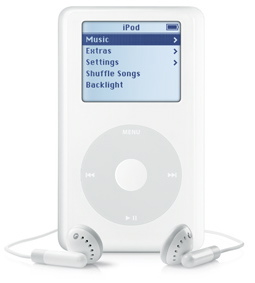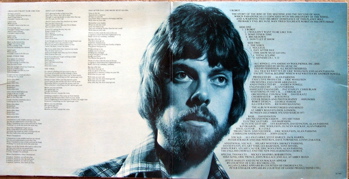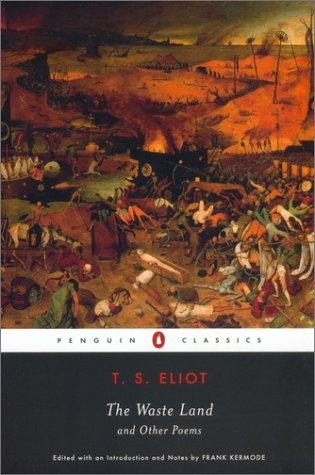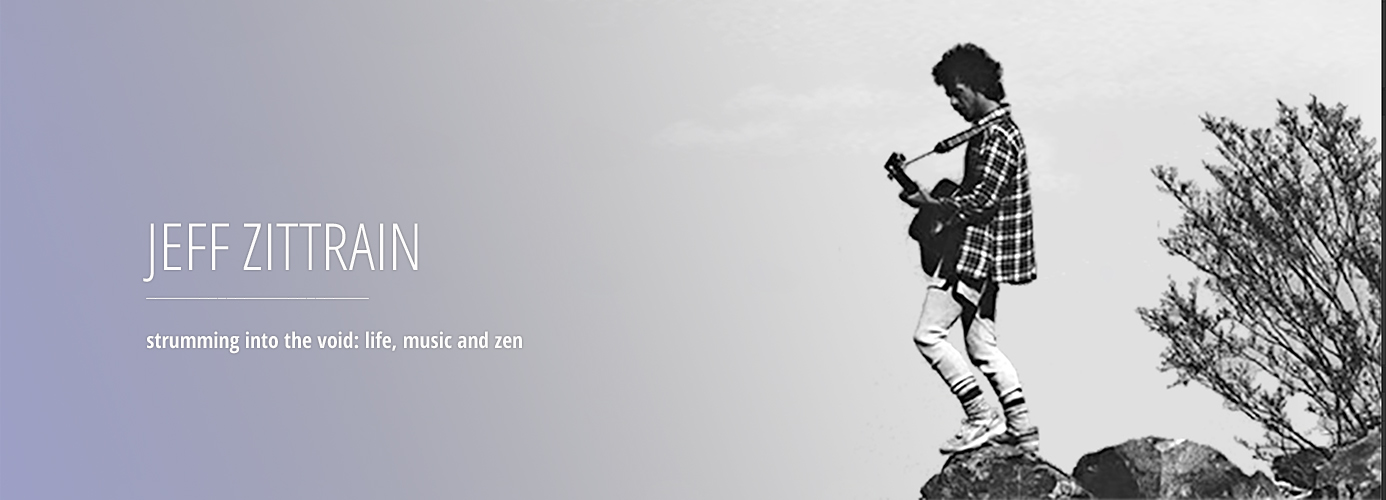
So I broke down and made a deal with the devil and truly entered the 21st century and stepped boldly into our brave, new digital world. I got an iPod.
No big deal, you say? All the kids are doing it? Well, yes. But in less than a month I’ve noticed some interesting tipping points in the way I listen to music.
So far, I’ve been most tempted to set it to “shuffle.” It becomes my own personal radio station. Songs that lingered in the dusty corners of forgotten albums get the same chance to be heard alongside everything else. No need to think of the song, find the cd, put it on, etc. My collection comes to me, randomly. Very democratic.
It’s also been quite the John Cage/William Burroughs trip to hear the truly bizarre juxtapositions of songs, as folkie Carol Elizabeth Jones’ sweet acoustic lament “Someday” is trampled by a live version of Blue Oyster Cult’s “7 Screaming Dizbusters” which appropriately segues into an instrumental from “Buffy the Vampire Slayer”, is then saved from Hell as the Blind Boys of Alabama sing “Jesus Gonna Be Here” and then falls into these earthly traps with Public Enemy’s “Prophets of Rage”.
I’ve also found myself foregoing most of the classic FM radio staples – no Beatles, Who, Led Zeppelin, etc – that I’ve heard so many billions of times – instead listening to those bands’ more obscure stuff (Pete Townshend solo, Dire Straits live at the BBC, Fleetwood Mac’s “Bare Trees”), indie bands (Vigilantes of Love, Tanya Donelly/Belly, Sugar, Matthew Sweet, Dean Magraw) and also lots of local and unsigned bands (Tiny, Jake’s Leg, ing, Two Gallants, United Sheep, Chuck Prophet, Absent Iris, Personal Demons, Bellyachers). In the interest of full disclosure, careful readers may recognize my own guitar paws in a couple of those names…
All good, right?
Yet I’m noticing something else, as well. Carrying around all of this music, all accessible, all the time, I’ve also become impatient. Why listen to something that’s not exactly perfectly fitting your mood when everything else is right there? Perhaps more insidiously, when you’re so interested in the larger context, with hearing all the bizarre juxtapositions with everyone getting a voice, you don’t want to interrupt the flow of diversity with a song that’s too long. The 17 minute or 10 minute or even 7 minute jams on “Jerry Garcia at the Keystone” suddenly seem almost selfish – why are they taking up so much space – what about everyone else’s turn?
Long, patient jams really experience time in a different way. The “problem” with those jams is: They become their own worlds. Their value is suddenly their detriment.
You can tell that the shuffle mode is not geared for the epic songs just by virtue of how they get cut up – you can hear Garth Hudson’s organ solo “The Genetic Method” from the Band’s “Rock of Ages” but then you don’t get the payoff into “Chest Fever.” The Dead’s “Lost Sailor” doesn’t go into “Saint of Circumstance.” Rush’s “2112” is sliced and diced like it’s on a late night infomercial.

So you don’t forget, order before midnight tonight…!
iPod on shuffle has turned me into – egads! – a singles-oriented station.
What does this mean? There’s a fascinating context in all the diversity – but a lack of album context. And while there’s certainly genius to be had in the 4 minute single, (Mary Gauthier, for instance, really stands out here), what about room to make a larger, album statement? Not necessarily a “concept album” but simply a piece that takes longer to absorb, where the songs play off of each other in their own larger context.
“So turn off your damn shuffle mode” I hear you saying. But it’s more than that. I think back to my days listening to music around the fire in my cave. I would pull out a record and stare at the cover art and read the liner notes as the music played. I would discover musicians who played on each other’s records. I would pay attention to the years songs were written, and who wrote what. And the fold-out albums were useful – I recall sitting in a dorm room and seeing mushrooms carefully measured across the earnest, future-looking blue-ish face of Alan Parsons on the inside of “I, Robot.” It was a full experience, even before the mushrooms were scarfed down. Remember the scene in “Almost Famous” where the young Cameron Crowe pulls the albums from under his bed and traces his hands along their covers? It’s his hidden world, his gateway to another reality.

The inside of “I Robot”, sans ‘shrooms…
It’s the digitization of the music which makes everything so easy and yet so ephemeral. A few months ago, Famous Last Words was heading down to Monterey for a gig. I told our bassist Kate’s son Will we should get the song “Monterey” by the Animals to listen to for the trip. I was imagining a treasure hunt through the stacks in the used cd stores, finding the song, taking it home, listening to it, hearing the other tracks on the cd, etc, when Will said a few minutes later, “Got it.” He had downloaded it from iTunes and put it onto his iPod already.
Which was great and convenient and we listened to it for a few seconds and then moved on. Because when things are that convenient and quick, they seem more disposable. We don’t need to focus. “Back in my day…” I heard myself thinking, “we had to walk 20 miles in the blinding snow to buy a big old bulky record which you could then only play in your house and only ½ at a time without getting up and turning it over. Plus, we lived in a cardboard box.”
Marxist theorist Walter Benjamin applauds the democratization of art in his 1935 landmark essay “The Work of Art in the Age of Mechanical Reproduction” – in which paintings are no longer the exclusive realm of the elite, because they can be reproduced by photography and the masses don’t have to wait in lines and go to museums or private homes to see them. Antonin Artaud likewise takes art down a few of its pretentious notches in his 1938 landmark essay “No More Masterpieces”, and Andy Warhol famously said, quite presciently, “In the future everyone will be famous for 15 minutes.”
In 2005 the future is here – this democratization is seeming more and more pervasive. In a great way, more people have access to music and music-making tools and my iPod, for example, is not feeding me the monolithic corporate mass of the radio.
On the other hand, have things become equal but equally diluted? No focus on the larger statement, we the listeners don’t give ourselves up to the art – we don’t allow it to take us away – we have the control. We channel surf our iPods and mix and match songs according to our momentary whims. We don’t allow for masterpieces or anyone to stay famous, even if they deserve it.
I’m reminded of the end of T.S. Eliot’s epic poem “The Waste Land”, in which he has patched together bits and pieces of culture into his own whole. “These fragments I have shored against my ruins” he says.

This is the way the world ends
T.S. Eliot
This is the way the world ends
This is the way the world ends
Not with a bang but a whimper
Quite apocalyptic. Seeing civilization with the wide angle, at the end.
This is the way the world ends, not with a bang but a shuffle.
